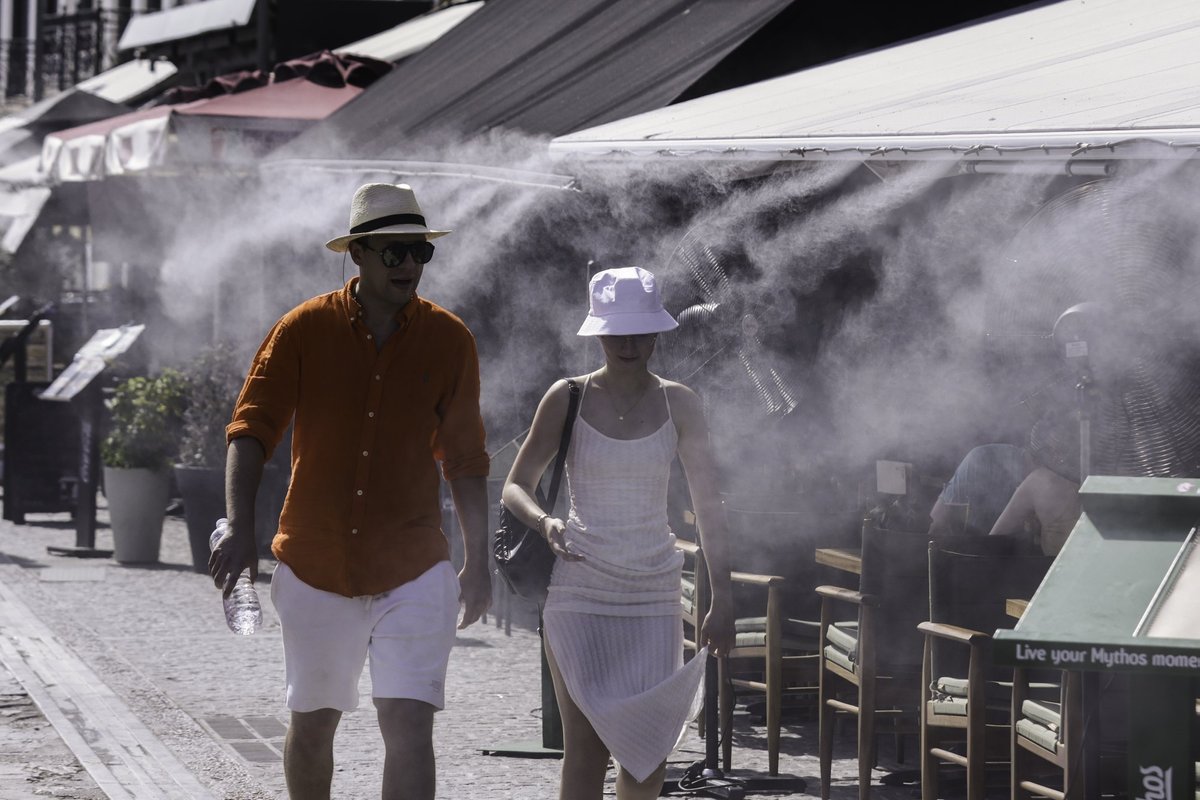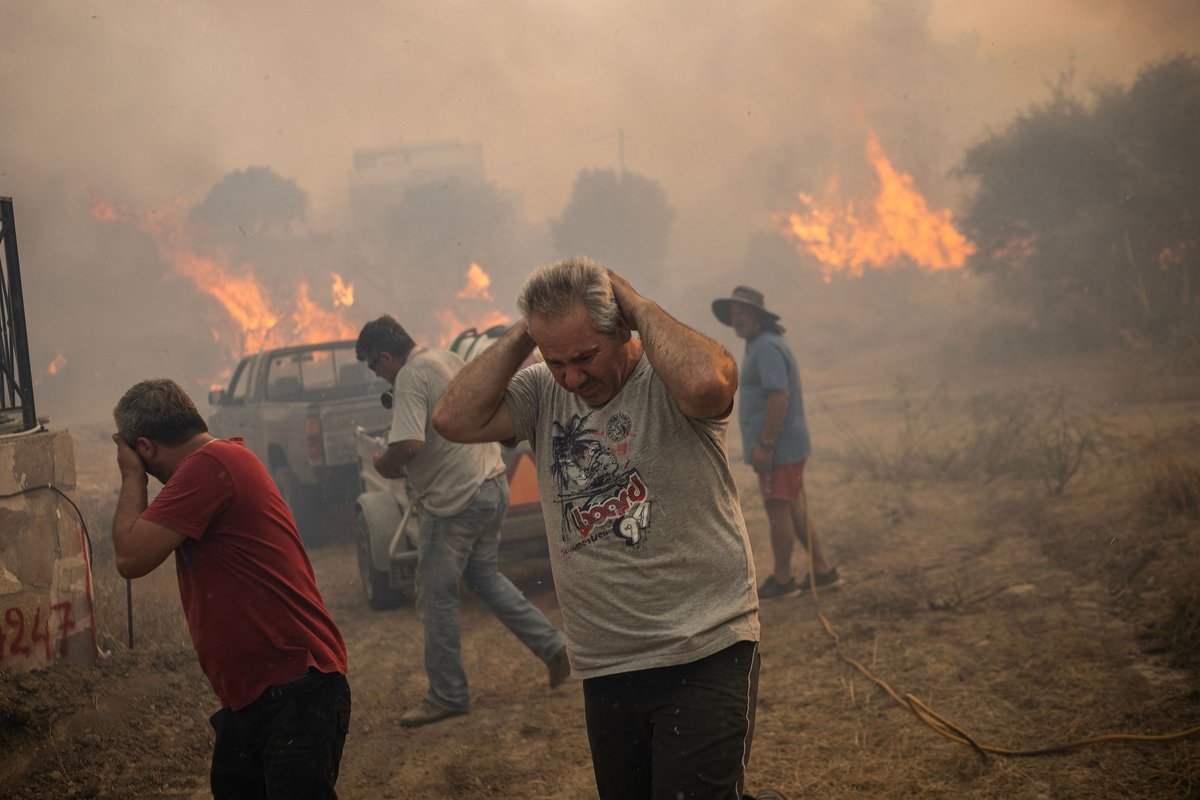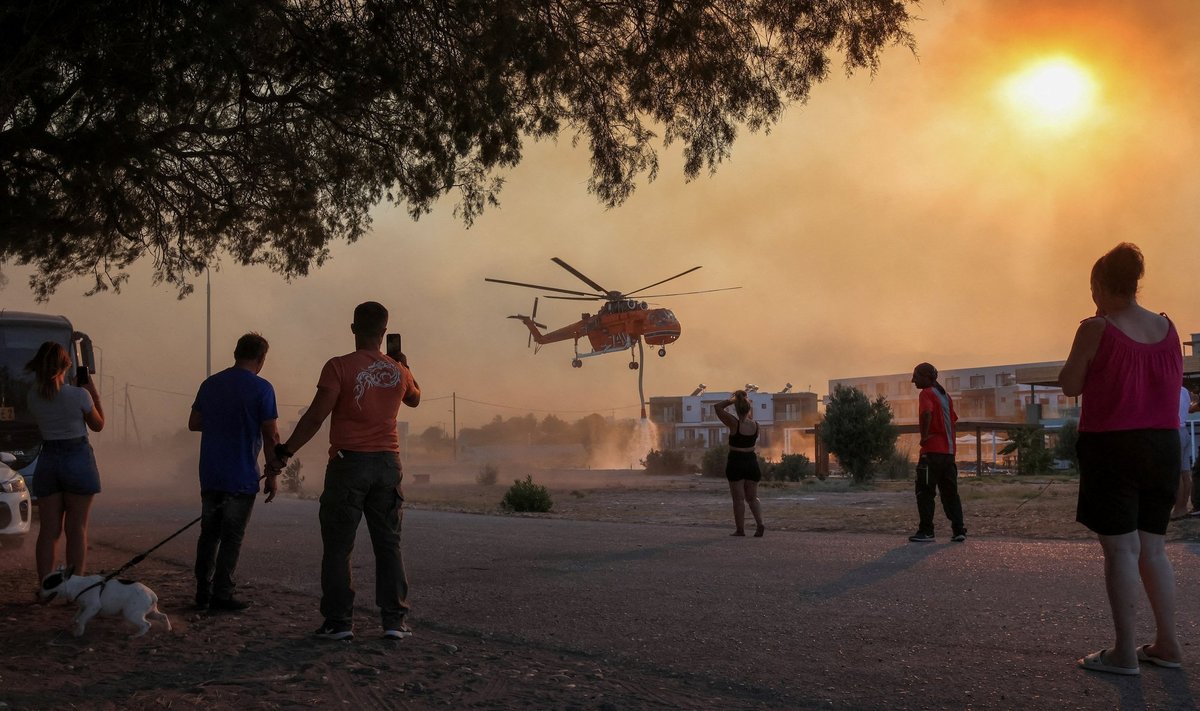Greece continues to experience abnormal heat. Red has been declared in many regions, the highest level of danger due to forest fires, which have intensified due to strong winds. Several islands popular with tourists have been massively evacuated.
According to the World Wildlife Fund (WWF), 35 thousand hectares of forests have already burned out in Greece over the past week, and scientists point out that the current heat wave in many countries of Europe and North Africa is a direct consequence of climate change.
The National Meteorological Service predicts that temperatures could reach 41 °C in the coming days in Athens and 44 °C in central Greece.

In the town of Yithion in the southern Peloponnese, temperatures reached 46.4°C on Sunday, and although the national record of 48°C has not been broken, this is of little consolation.
Due to the heat, many tourist attractions in Greece, including the Acropolis of Athens, close during the hottest hours of the day.
“Another difficult summer awaits us,” Greek Prime Minister Kyriakos Mitsotakis said at a government meeting on Tuesday.
Mitsotakis stressed that there is no “magic shield” for the Mediterranean region, which he says has become a climate change hotspot on the planet.
The climate crisis is likely to continue to worsen with rising temperatures, increased drought, and strong winds, leading to hotter and harsher summers in the coming years, he said.
The day before, Mitsotakis also warned that the next three days will be the most difficult this month, after which the heat will begin to subside slightly.
According to the head of the Ministry of Climate Crises and Civil Protection of Greece, Vassilis Kikilias, over 500 fires of varying complexity have had to be extinguished in the country in the past 12 days.
They were especially destructive on the islands of Rhodes and Corfu, popular among tourists, where at this time the tourist season is in full swing.
Nearly 2,500 people were evacuated from Corfu on Monday.
On Tuesday, while extinguishing a fire on the second-largest Greek island of Evia (Evboe), one of the planes that fought the fire crashed.
The plane dropping water crashed on a slope near the town of Karystos. Both pilots, the 34-year-old crew commander, and the 27-year-old pilot, were killed.
At least three aircraft and hundreds of firefighters took part in extinguishing fires on the island.

In Rhodes, more than 260 firefighters, supported by two aircraft and two helicopters, continue to fight the fire.
And although on Tuesday the leadership of the Rhodes Airport reported that the situation had returned to normal, more than 2,000 tourists were taken out on emergency flights earlier.
In the north of the island, volunteers came to the aid of foreign tourists who were evacuated from hotels on Saturday and settled in a local school.
Vassilis Kalabodakis, the mayor of the village of Vathy in southeast Rhodes, says the fires have been the most tragic for their region.
“Our village has been ordered to evacuate, but we cannot abandon it, so we are fighting to protect our homes,” he told reporters.
According to Kyriakos Sarikos, marketing manager for H Hotels Group, which owns six hotels in Rhodes, the situation resembles a “catastrophe of biblical proportions”. Although the hotel where he works was not damaged, everything around it burned out, and all guests and staff had to be evacuated.
“We need a plan to get out of this crisis and rebuild the entire region,” he says. “A hotel, it’s just a hotel, it can be refurbished and repainted, but the most important thing is nature.”
The intense heat has spread to other countries in southern Europe and North Africa.
In Algeria, at least 34 people have died as wildfires have spread to residential areas. The fires there led to the mass evacuation of residents.
Witnesses described “walls of flames” and television footage showed charred cars, burned-out shops, and houses.
In Italy, firefighters spent the night fighting wildfires in Sicily. One of the fires came so close to Palermo airport that it was closed for several hours on Tuesday morning.
The Italian Civil Protection Department on Tuesday reported extensive fires in the south of the country.
“We are experiencing some of the most difficult days in Italy in decades – rainstorms, tornadoes, and giant hail in the north, scorching heat, and devastating fires in the center and south,” Civil Defense Minister Nello Musumeci said.
In the Albanian capital Tirana, temperatures soared above 40 degrees on Tuesday, prompting hospitals to reopen several emergency centers.
Hundreds of patients across the country have turned to doctors with problems associated with a sharp jump in temperature, including high blood pressure, dizziness, and fainting.

